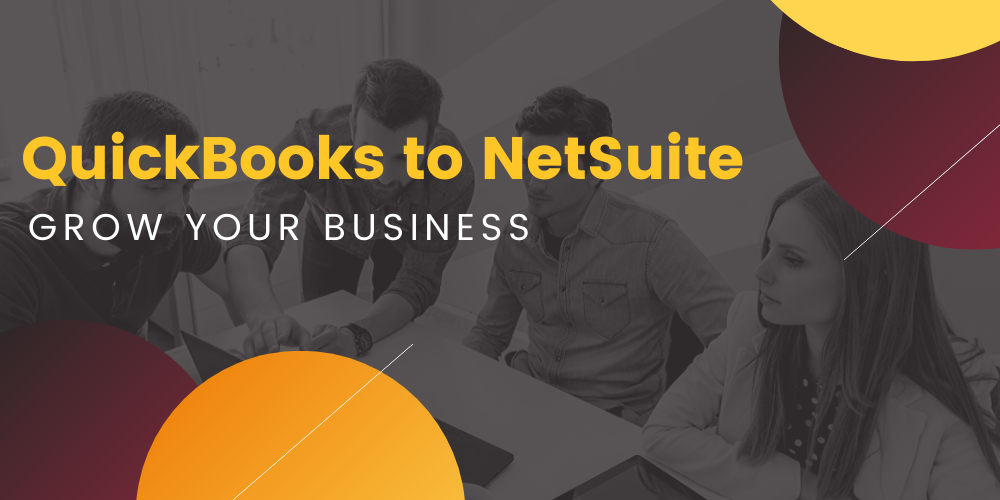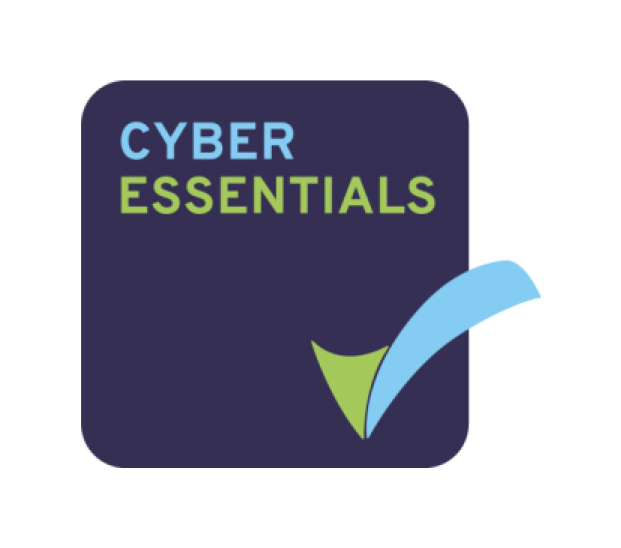
In this article, we will be looking at the biggest takeaways from NetSuite’s webinar ‘Making the Switch from QuickBooks to NetSuite.’ The webinar explored analyzing the different barriers businesses face as they grow, why QuickBooks’ limitations prevent you from expanding, and how migrating to NetSuite will take your operation to the next level, without eating into your budget.
39% of businesses migrate from QuickBooks to NetSuite.
Download our report to gain further insight into expanding your company with NetSuite’s products.

Anderson Frank’s NetSuite Market Trends and Salary Survey takes a comprehensive look at salaries across all NetSuite positions and explores workplace benefits and factors that influence job satisfaction, as well as industry trends, giving you the most up-to-date and comprehensive snapshot of the NetSuite community available anywhere.
Growing out of QuickBooks
As the most cost-effective accounting software on the market, QuickBooks can be good for small companies and start-ups. It allows businesses to seamlessly run and scale their operation without eating into their budget. However, when a company is ready to grow, the success of its expansion will rely on higher transaction volumes and speed.
Maintaining QuickBooks during this stage can become dangerously unreliable for a growing business. Companies find it lacks many capabilities that will help them to expand, and they soon realize the software’s limitations counteracts the seemingly low-cost.
Common obstacles such as lack of real-time data, inefficient manual processing, and constant errors prevent businesses from gaining growth opportunities like mergers, intercompany transactions, and multinational expansion.
Ultimately, companies will require a more complex system that can handle the capabilities of expansion. Yet, as a small company, how do you know when it’s time to step away from QuickBooks and grow with another system?
Overcoming business barriers
Complexity, scalability, and competition are the three barriers to overcome when you’re growing and breaking into the next level of your business.
Complexity = communication
You will need to consider:
- Employee Growth
- Offering new products
- The business model changing
- New systems for new functions
Scalability = more units to sell, produce, and buy
You will need:
- To have transparency of the entire business
- Accountability from the people using the system
- A system that is available and reliable for your business
Competition = your competitors in the market and price margins
You will need:
- To overcome the challenge of retaining existing customers
- Find new markets to manage your growth
- Gain an in-depth understanding of your customer’s data, profit margins, and product returns, to help maintain sustainable growth
Specific day-to-day challenges growing companies face
Accounting standards
As you expand, you’ll find you need more capital to continue that momentum. To do this, you will require more complex accounting standards, like revenue recognition and leasing.
Capital requirements
When you’re seeking capital investment, it’s essential to be able to track your funding. External investors will need access to your financial statements when considering investing in your company and they will also set you debt covenants and revenue goals to benchmark how much debt you can have, as well as how much working capital you require.
Customer relationships
You’ll need a transparent and reliable pipeline that will help you deliver your product to your customers to keep them happy and converting.
Global competition
Once you can sell your product to anyone in the world at any time, you’ll need to be able to handle the challenges of trading globally. To have global success, you’ll be required to source at the most competitive level, manage your currency exposure, and abide by the local business requirements.
Acquisitions
As you reach new levels of business opportunities, the ability to integrate new systems will become imperative to entering new markets.
Employee management
Your team will drive a lot of the growth barriers, so you’ll need to ensure internal productivity is happening, payroll is under control, and employee records are up-to-date.
If you’re experiencing these challenges, you’ll start to realize QuickBooks can’t handle your business processes, and you may need to update to a more capable tech stack system.
What is a tech stack system?
A tech stack system is a technical operating system that maps out the core business processes required for any growing company.
- Brand to demand: how to build a customer brand to create a need for your product.
- The idea to market: how to develop an idea into new products or services.
- Prospect to cash: how to sell your product, fulfill your orders, and earn a profit.
- Procure to pay: how to obtain and pay for goods, i.e., materials, storage, and shipments.
- Customer need to resolution: how to manage your customers.
- Record and report: how to report your finances and accounting.
- Human capital management: how to hire the right staff.
- Assess management: how to manage the whole lifecycle, from project conception to completion.
Your tech stack on QuickBooks
These are the services QuickBooks offers:
- Prospect to cash: how to sell your product, fulfill those orders, and earn a profit?
- Procure to pay: how to obtain and pay for goods? i.e. materials, storage, and shipments.
- Record and report: how to report your finances and accounting?
Due to the limitation of QuickBooks, you may find you’re using Excel to connect all these different processes together. This is where you’ll start to see growth manifest and begin to add pressure to your current system.
Your tech stack for overcoming the competition
As you begin to expand, you’ll need to ensure you can overcome entry barriers to new markets by considering other business processes in your tech stack that can advance your operation.
Processes such as:
- The idea to market: product lifecycle management
- Customer need to resolution: customer relationship software system (CRM)
- Procure to pay: manufacturing execution software
- Sales planning & MRP: planning and budgeting software
As your business grows and your tech stack proliferates, you’ll face new challenges, like reporting complex data. Once you begin to tackle these challenges, you’ll discover that QuickBooks cannot provide you with a single source of truth, preventing you from understand in real-time what is happening in your business.
In addition, you’ll start to become overly reliant on Excel to do your cash models, sales, and reporting; which will increase the risk of errors and poor decision making—hindering your ability to manage your growth. Still, as a growing business moving away from QuickBooks, every dollar will count for your investment. So, how do you overcome these issues without overloading your business with cost?
The benefit of an ERP Cloud system
The best way to minimize the cost is to switch to a cloud ERP. A cloud-based server, like NetSuite’s ERP, will manage the database, server, and hardware with their internal controls—allowing you to offload a lot of your responsibilities such as employee growth, IT system, and utility power—while keeping the cost of the process to a minimum.
As you grow in revenue, you’ll need a system that is flexible and can adopt new practices to help you move to the next level.
Unlike an on-premise ERP, NetSuite’s cloud ERP allows you to turn a module on and off, letting you use the business process that is vital to your company and adapting other processes when you need to, helping you to stay in control of every operational decision.
When looking for your first ERP, it’s important to invest in a system that will connect the front and back office of your operation, from your sales delivery to the time management of your staff.
By gaining a holistic perspective of your company, you will have a better understanding of how to overcome your challenges. Eventually, you’ll see a positive domino effect in the other areas of your business, such as your marketing efforts, the sales pipeline, and the quality of your reporting.
Learn more about cloud-based ERP
Tech stack for growing companies
Often with QuickBooks, the common question for businesses will be ‘is that number correct?’ With a NetSuite approach, the problem will transform into ‘how are we going to leverage this number to improve?’ By upgrading from QuickBooks to NetSuite, you can modify the entire culture of your company and take the execution of your operation to the next level.
Here are some of the modules available on a NetSuite cloud ERP:
- Brand to demand
- Idea to market
- Prospect to cash
- Procure to pay
- Bill of materials to finished goods
- Storage to shipment
- Sales planning to MRP
- Customer need to resolution
- Record to report
- Hire to retire
- Project conception to completion
- Find to fix
With the help of NetSuite’s products and its fully thriving ecosystem, you’ll be able to simplify your entire tech stack into one system, and migrate from QuickBooks to NetSuite seamlessly.
Utilizing your new NetSuite ecosystem
When upgrading to an ERP system, a lot of companies try to run before they can walk and assume they need access to every piece of software to be the best. However, to be disruptive in your industry, you’ll need to encompass a mix of low, medium, and high use of quality systems to push your way to the top of the market.
This methodology is how NetSuite became the leading cloud ERP product. Since then, they have applied this methodology to their service product, SuiteSuccess. With SuiteSuccess, companies have access to over 20,000 customer experiences to see what business strategies work for their vertical and apply the best practices to their tech stack.
However, not all businesses will have the same experience. Your company may have a complex business practice that will need to be tailored specifically to your operation, and this is when you need the help of an experienced NetSuite professional.
Staffing your NetSuite implementation
The NetSuite partner community has been designed to handle the most demanding line of business for your system. They can help simplify your tech stack while avoiding the inefficiencies you had with QuickBooks. Still, it’s crucial to the success of your ERP implementation to choose the right NetSuite partner for your business.
You’ll need a partner that has experience in your industry, is capable of strategizing both short and long-term goals for your business and can consult you throughout the entire project to help you reduce the risk of unnecessary cost to your upgrade.



